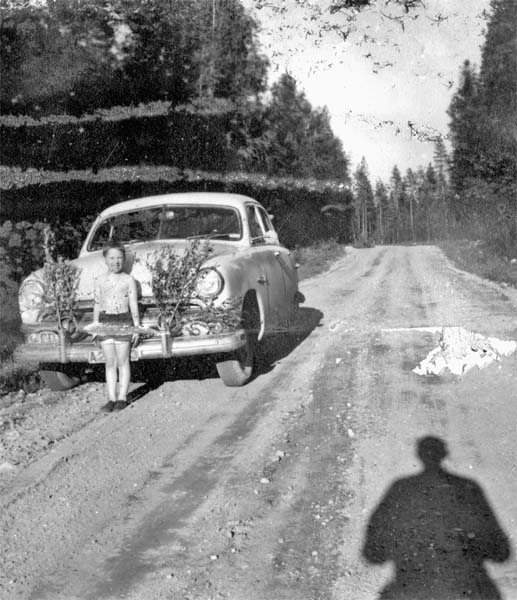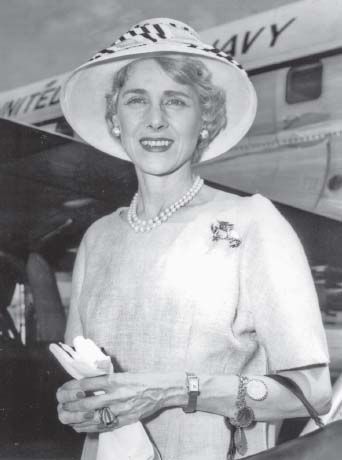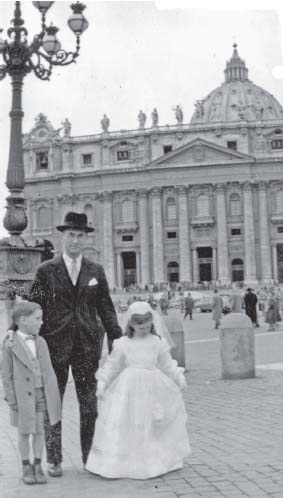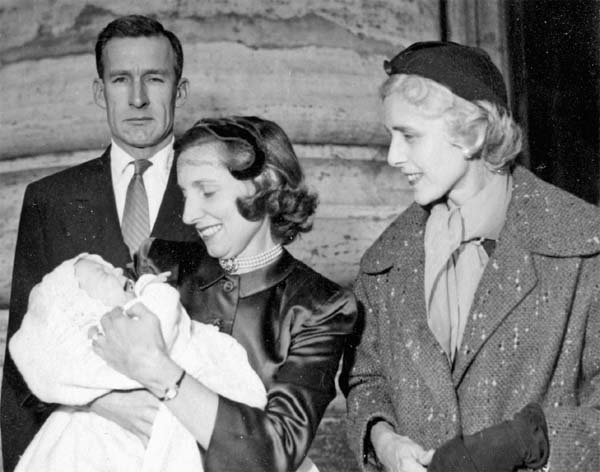Shadow Warrior (61 page)
Authors: Randall B. Woods

Soon after he was picked to succeed Helms, but before his Senate confirmation, Schlesinger began meeting with Colby at his AEC offices in Germantown, Maryland, sometimes for six hours at a time. Schlesinger made it clear that he wanted to continue de-emphasizing covert operations, but he said he also intended to dismantle the analytical wing of the Agency. The emphasis should be on gathering intelligence on communist “hardtargets” such as the Soviet Union and Communist China, with CIA personnel complementing the sophisticated technology developed largely by the military. But even beyond that, Schlesinger told Colby, he wanted to change the whole meaning and culture of “intelligence” at Langley. The super-secretiveness and severe compartmentalization that had emerged over the years had hamstrung the Agency, he said. Under the aegis of its spies and counterspies, the CIA had become bloated and complacent. He referred scathingly to “the good old boys” as “deadwood” that had to go. In this spirit, Schlesinger ordered a green-and-white highway sign reading “Central Intelligence Agency” erected on the parkway. When Langley had been built, there had at first been such a sign, but Bobby Kennedy thought it ridiculous for an intelligence agency to advertise its whereabouts and ordered the sign replaced with one reading “Bureau of Public Roads.”
50
Much of what Schlesinger said was music to Colby's ears. While in Vietnam, he had come to admire the analytical branch's courage, if not its wisdom. The constant negativity seemed to fly in the face of the facts. “I had come to wonder,” he later wrote, “whether some of the analysts' opinions had not become too firmly fixed and whether their objectivity had not come to reflect academia's bias that our programs in Vietnam just could not succeed.” Even more encouraging, Schlesinger seemed to share his doubts about Angleton and the whole thrust of counterintelligence. Upon his return to Langley from Vietnam, Colby had once again been struck by the dampening effect the counterintelligence culture was having on intelligence gathering as a whole. Intelligence and counterintelligence were missing the forest for the trees, spending endless effort and time on “turning” minor functionaries within communist embassies, for example. Angleton's obsession with moles continued to paralyze the Soviet and East
European Division in its efforts to identify and recruit defectors. Schlesinger's pillorying of the cult of intelligence, Colby hoped, would lead at last to an end to Angleton and the CI Staff's chokehold on the clandestine services. The former Jedburgh continued to believe in the efficacy of covert action, especially as an alternative to full-scale war, but dared to hope that with the blooming of détenteâthe ongoing US effort to achieve peaceful coexistence with the communist superpowersâthere would not be as much need for the knuckle-draggers.
51
Colby had long coveted the job of deputy director of plans, head of the clandestine services. Tom Karamessines, a Helms loyalist, had retired with the departure of his boss. “Look,” Colby told Schlesinger, “where you are going to have your biggest troubles is with the clandestine crowd downstairs. I'm one of them. I grew up with them. I know them. Let me go down there and take care of that for you.” Schlesinger proved amenable, but what would he do about the executive director position Colby had been filling? Schlesinger said he would need either an executive director or a chief of staff. Colby did not think so, but he agreed to serve as ad hoc chair of a management committee that consisted of the other deputies. Thus was his dream of becoming deputy director of plans fulfilled.
52
As Langley soon learned, Schlesinger had a mandate from the White House to make changes, and he intended to do just that. He began actively chairing the United States Intelligence Board, which included representatives from all US intelligence entities, and had some success in asserting control over the intelligence community. The new director quickly backed off his war against the analysts, however, deciding to encourage participation by the younger members of the staff in the preparation of National Intelligence Estimates. Of John Heisinger, head of the Office of National Estimates, Schlesinger said, “I am not going to have it said of me that I fired the smartest man in the CIA.” Schlesinger was, however, relentless in his drive to cut clandestine services. As deputy director for plans, Colby became his hatchet man.
53
Colby began his tenure by renaming the Directorate of Plans. It would now be the Directorate of Operations to more accurately describe what the branch did. He established a committee under Cord Meyer, his deputy, to come up with the best method for achieving the personnel cuts Schlesinger wanted. At that time clandestine services employed 6,000 to 7,000 of the Agency's total of 17,000 officers; no less than 85 percent of
its officers had been on the job for more than twenty years. Colby began with the oldest, arranging for retirements, or, if that was not possible, demotions. But soon there was no choice but to fire. “It wasn't long,” Colby recalled in his memoir, “before a phone call from me cast a chill over any recipient.” Those affected attempted to push back. Senior people leaked stories to the press. Schlesinger was hauled before the House Armed Services CIA subcommittee and asked if he was trying to destroy the very agency he commanded. At one point the DCI summoned rebellious staff members to his office and in their presence phoned Nixon. The firings were going to cause a public flap and bad publicity; there might even be lawsuits, he told the president. Nixon made it clear that Schlesinger had his full support. From that point on, organized opposition to the purge began to die down. When the dust had cleared, Schlesinger and Colby had pared somewhere between 1,000 and 1,800 individuals from the Agency's staff, between 7 and 10 percent.
54
One person whom Colby expected to go but did not was James Jesus Angleton. Colby made no secret of the fact that he thought Angleton's super-secret mode of operating; his huge, invasive staff; and his obsession with communist moles were drags on the Agency. He recommended to the DCI that the longtime head of counterintelligence be eased out. But Schlesinger refused. Like his predecessors, the new director was intrigued with Angleton's “undoubted brilliance,” as Colby put it. And he did not want to be the first DCI caught with a major mole in his operation. There was also a shared hardline anticommunism between the two. Schlesinger would not agree to ground Angleton, but he allowed Colby to clip his wings. During the Schlesinger-Colby purge, CI lost 80 percent of its staff. The team that ran MH/Chaos was gutted. Angleton was stripped of his role as liaison with the FBI. And then there was the super-secret mail-intercept program. Colby claimed in his memoir that neither he nor Schlesinger knew about the program until shortly after Colby became head of plans, when the postal inspector informed Langley that he would not continue what was clearly an illegal activity without a presidential directive. Colby visited the law library and, assured that the CIA's opening of correspondence between the Soviet Union and the United States was indeed a violation of the law, went to Schlesinger and recommended that the program be terminated. This, in turn, led to a confrontation with Angleton in the director's office. Since the inception of the mail-intercept program, CI
had been the sole recipient of the information it produced. Appeal to Nixon, Angleton demanded; obtain the presidential order. Schlesinger refused, but with a view to saving a portion of Angleton's face, he decreed that the program be “suspended” rather than terminated.
55
In mid-April 1973, Catherine Colby died. She was twenty-three years old. Upon his return from Vietnam, Colby had bought a house on Briley Place off of Massachusetts Avenue in Bethesda. “It exuded suburbia,” his daughter-in-law, Susan, recalled, “that parochial mentality that is so Catholic middle class. It was next to a church and he could park his family there.” The backyard was encircled with a chain-link fence; Bill bought Barbara a dog to patrol it. Catherine had actually seemed to be making some progress. The Phoenix hearings and the public slander that followed had been hard on her, but the anorexia that had set in after a trip to Israel had begun to abate. She had gained some weight, and in March she had signed up to take the civil service exam. To calm her nerves, Catherine took medication the night before the test. Carl, two years younger, heard commotion in her room and rushed in to find that his sister had choked on her own vomit. He gave her CPR, but without success. At that point, Bill appeared. There was nothing either man could do. John Colby recalled that his father was weeping when he telephoned to break the news. Nixon sent a letter of condolence, and Schlesinger kept company with Bill and Barbara the entire day of the funeral.
56
A tour of the Agency's overseas outposts offered some distraction from the tragedy of Catherine's death. Colby met the Middle East station chiefs in Athens, journeyed through Austria and West Germany to check on Agency operations there, and traveled to Bangkok to see old friends from the Far East (now East Asian) Division. While in Bangkok, Colby read in the newspaper that during Daniel Ellsberg's trial on theft and conspiracy charges for revealing the Pentagon Papers, it had come to light that E. Howard Hunt, using equipment borrowed from the CIA, had broken into the offices of Ellsberg's Los Angelesâbased psychiatrist. Hunt and his fellow Plumbers had been after damaging material that could be furnished to Langley's medical branch as it prepared its “psychiatric profile” of Ellsberg. Colby recalled that when the FBI had inquired about Hunt's relationship with the Agency during the Watergate investigation, he had seen prints of some film Hunt had given to Langley's technicians to develop. They were grainy but showed the exterior of offices with the names of two physicians etched on a plaque. Colby had ordered the film turned over to the FBI, but he did not realize its significance until he read the account of the Ellsberg trial.

Rural spy rendezvous with family cover, Sweden, 1950s
(The Colby Family Collection)

Clare Booth Luce, US Ambassador to Italy and WEC intimate
(The Colby Family Collection)

In St. Peter's Square, Rome, 1950s
(The Colby Family Collection)
